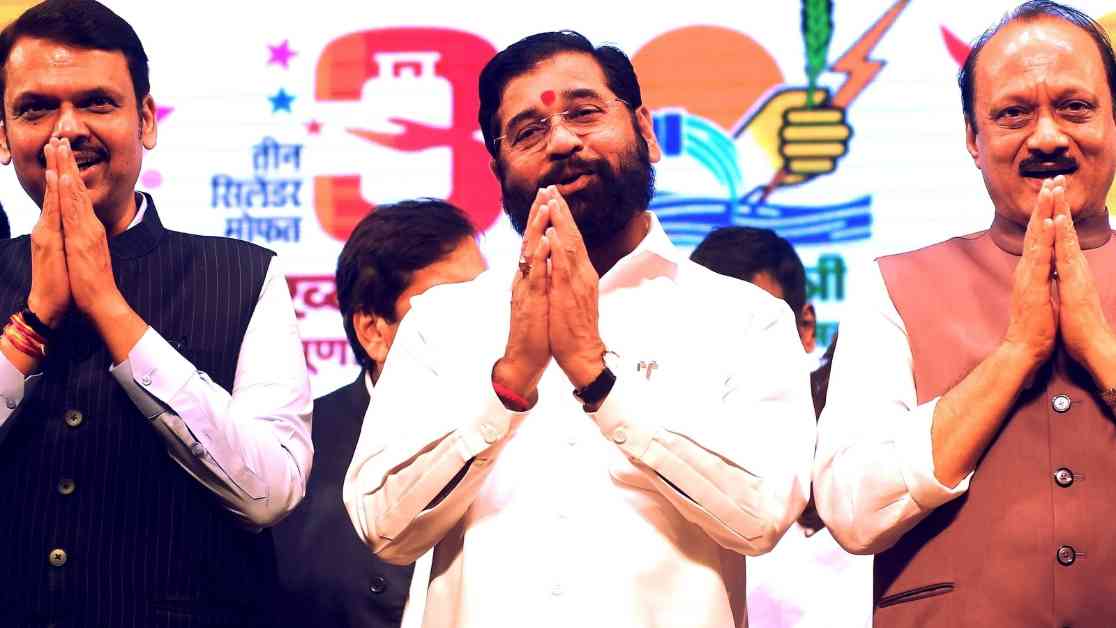Dispute over Temple Land Ownership Escalates in Maharashtra
In a recent development in Maharashtra, a dispute has erupted between the state government and the Hindu Janjagruti Samiti over the ownership of temple lands in Marathwada. The conflict stems from the government’s decision to transfer these lands to current occupants, granting them permanent ownership status. This decision has sparked outrage among members of the Hindu Janjagruti Samiti, who argue that it goes against established legal precedents and poses a threat to the financial stability of temples in the region.
Background on the Controversy
The lands in question were previously classified as ‘Class 2’, which imposed restrictions on transfer rights and required the collector’s permission for any changes in land use. However, the state cabinet recently approved a proposal to reclassify these lands as ‘Class 1’, effectively granting permanent ownership to the current occupants. This decision affects a significant amount of land, including 42,710 hectares of ‘Khidmatmash lands’ and 13,803 hectares of ‘Madatmash land’, which are crucial for the financial support and management of temples and shrines in Marathwada.
The Maharashtra Mandir Mahasangh, an organization affiliated with the Hindu Janjagruti Samiti, has strongly condemned the government’s decision, citing various Supreme Court rulings that emphasize the protection of temple lands from unauthorized acquisition. Sunil Ghanwat, coordinator of the Mahasangh, expressed concerns about the repercussions of granting permanent ownership to encroachers, stating that it could severely impact the financial viability of temples and hinder their ability to carry out essential maintenance and upkeep.
Legal and Ethical Implications
The dispute between the state government and the Hindu Janjagruti Samiti raises important legal and ethical questions regarding the ownership and protection of temple lands in Maharashtra. The Supreme Court has previously ruled that temple lands are sacrosanct and should be safeguarded from unauthorized encroachments or acquisitions. By granting permanent ownership to current occupants, the government risks violating these legal principles and undermining the sanctity of temple properties.
Moreover, the decision to reclassify temple lands as ‘Class 1’ without proper consultation with relevant stakeholders, including temple authorities and religious organizations, raises concerns about transparency and accountability in land management practices. The lack of oversight and due diligence in this process could have far-reaching implications for the financial stability and integrity of temple institutions in the region.
Impact on Temple Finances and Administration
The Hindu Janjagruti Samiti has raised valid concerns about the adverse impact of the government’s decision on temple finances and administration. By granting permanent ownership to encroachers, the government risks depriving temples of crucial resources needed for their upkeep and maintenance. This could lead to a collapse of the financial structure of temples, making it difficult for them to carry out essential functions such as repairs, renovations, and organizing annual festivals.
Furthermore, the lack of accountability in the transfer of temple lands to current occupants could open the door to potential exploitation and mismanagement of these valuable assets. Without proper safeguards in place, there is a risk that temple lands could be misused or sold off for personal gain, leading to irreversible damage to the cultural and religious heritage of the region.
In conclusion, the dispute between the state government and the Hindu Janjagruti Samiti over temple land ownership in Maharashtra is a matter of grave concern that requires immediate attention and resolution. It is essential for all parties involved to uphold the sanctity of temple lands and ensure their protection from unauthorized encroachments or acquisitions. Only through transparent and accountable land management practices can the cultural and religious heritage of Maharashtra be preserved for future generations.




















